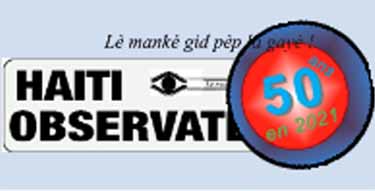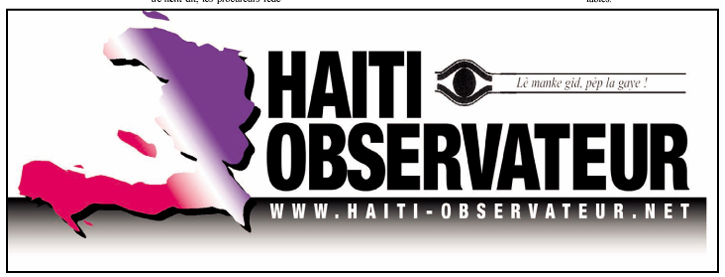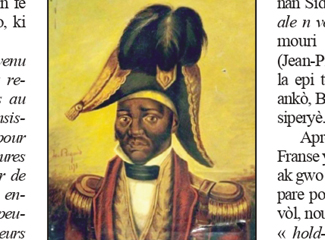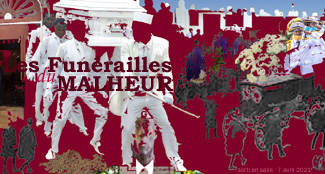Trump’s 2016 vow to Haitians That he’d be their champ
- Has just turned into tragedy
This article by Raymond Joseph, was a Special to the New York Sun which published it on January 11, 2018, identifying the author as Ambassador Joseph, founding editor of the Haiti-Observateur and formerly Haiti’s envoy in Washington, is a contributing editor of the Sun. Flabbergasted was my reaction
when I read about Haiti, El Sal vador and African lands being described with crude language by the President of the United States. Could that be true ? The story that I first read in the Washington Post
was also carried by the New York Post and the social networks, which gave it wide coverage.
Not denying what the President reportedly said, the White House compounded the insults by issuing the following tatement: “President Trump is fighting for permanent solutions that make our country stronger by welcoming those who can contribute to our society, grow our economy and assimilate into our great nation.”
I wonder whether the President has read about Haiti’s contribution to making America great! It was Haitian soldiers called “Chasseurs Volontaires” (Volunteer Riflemen) under French leadership at the time that covered the American retreat in October 1779 at the siege of Savannah, Georgia. They went on to fight at Yorktown.
It was the rag-tag Haitian army that defeated the crack troops of Napoleon Bonaparte, spoiling his plan to have a French empire in the New World. Fearful of further losses, Napoleon ordered the sale of Louisiana which was signed in 1803. Six months later, French troops were vanquished at Vertières, near Cap Haïtien, Haiti’s second largest city. So the Haitian war of liberation, the first successful slave revolt, made it possible for the young American nation to double its territory. The Louisiana Territory was that vast expanse of land west of the Mississippi River to the Rocky Mountains, and south from the Gulf of Mexico to the border of Canada, comprising 13 states. All of that for the equivalent to $15 million today.
Let us deal with current history. During the 2016 presidential election in the United States, Candidate Donald Trump went to Little Haiti in Miami, Florida, in search of the Haitian-American vote.
That visit got him a major article in the Miami Herald by Jacqueline Charles, a Haitian-American on the staff of the daily. Mr. Trump told his audience he had come to “listen and learn” and build a new
relationship with the community.
He made a pledge : “Whether you vote for me or not, I really want to be your biggest champion.” The Miami Herald understood what the candidate wanted to say and corrected it in the headline : “Donald Trump to Haitian voters : I want to be your greatest champion.” The Haitian-American citizens, especially in Dade County, voted overwhelmingly for Mr. Trump. Apparently, the Candidate didn’t learn anything and the new relationship he said he wanted has soured.
The visit to Little Haiti was the idea of Rudolph Giuliani, the former mayor of New York who had experienced the power of the Haitian vote in 1993. In his first run in 1989, Mr.Giuliani had been narrowly
defeated by David Dinkins.
Once he embraced the Haitians (who came to feel jilted by Mayor Dinkins) he became Mayor. And I am confident that this point was made to Mr. Trump. In the event, in 2016, the Haitian-American citizens at Florida, especially at Dade County, voted overwhelmingly for Trump. In the event he wants to repeat, he’ll have his work cut out for him.
The Haitians had first impressed New Yorkers on April 20, 1990 when more than 75,000 marched over the Brooklyn Bridge to protest the policy of the Food and Drug Administration —dubbed “Federal Discrimination Administration.” Ehe Centers for Disease Control had classified Haitians along with Homosexuals, Hemophiliacs and Heroin addicts as being responsiblefor the AIDS epidemic.
By 1983, the FDA issued a ruling banning Haitians who had immigrated after 1977 from donating blood. By 1990 the ruling was generalized to nclude all Haitians. That caused Haitians to unite to fight the arbitrariness of being the only ethnic group blamed for the disease that was causing havoc in America.
Eventually, the FDA withdrew Haitians from their classification.
After the Brooklyn Bridge march, the FDA, which was already negotiating with Haitian medical doctors and other health specialists backed down and withdrew Haitians from their classification.
Hence my astonishment when last month I read in the Times that President Trump had resurrected the AIDS issue regarding Haitians, disparaging them along with Africans, especially Nigerians, who would not “go back to their huts” once they arrived in the United States. The White House quickly denied that the President said such thing last June.
That’s going to be hard to credit his latest sortie against Haitians, Salvadorans, Africans and others. If he harbors – as he seems to do – an antipathy toward foreign minorities, believing they are changing the makeup of America, it is a tragedy mainly for him. It’s unfortunate for the leader of such a great nation to act on impulse, showing either bigotry or ignorance.
l’article dans sa version originale se trouve en P. 1 & 9 de l’édition du 17/01/2018, de l’hebdomadaire Haïti Observateur, se trouve à l’adresse suivante : http://haiti-observateur.ca/wp-content/uploads/2018/01/Journal17January2018compressed.pdf




